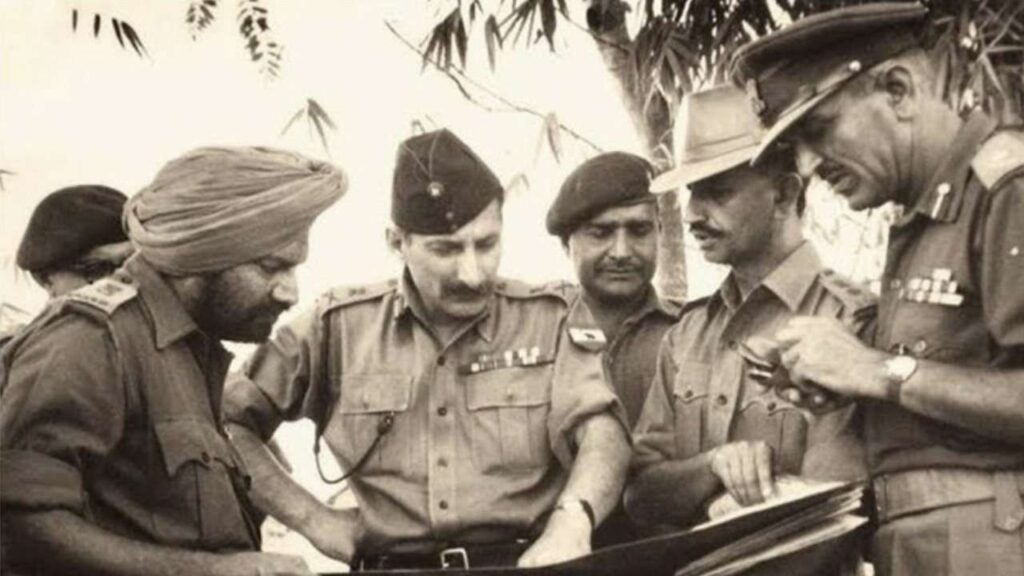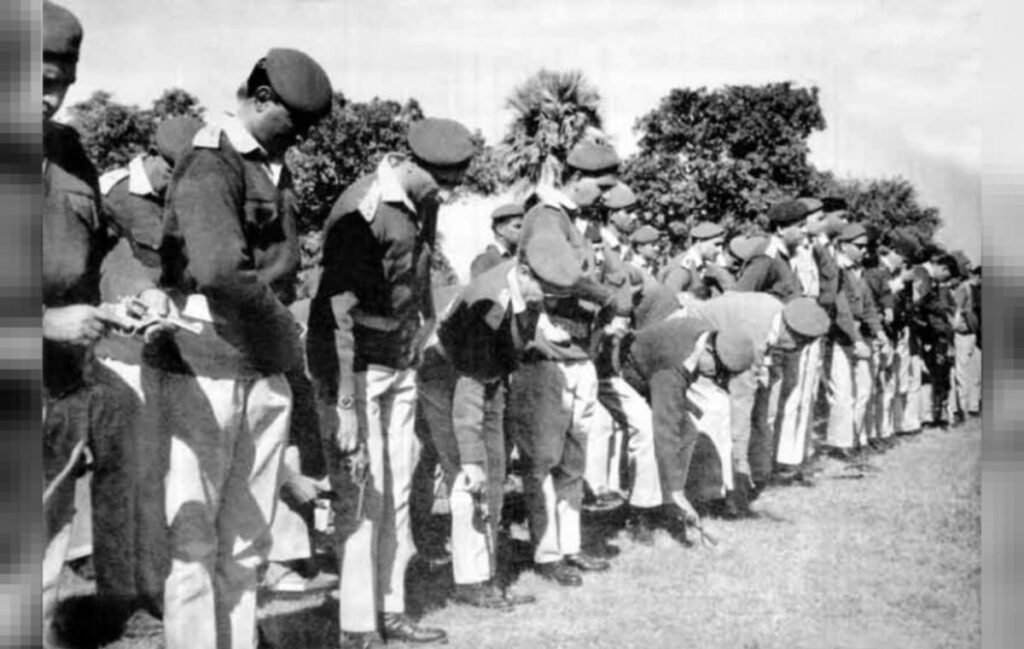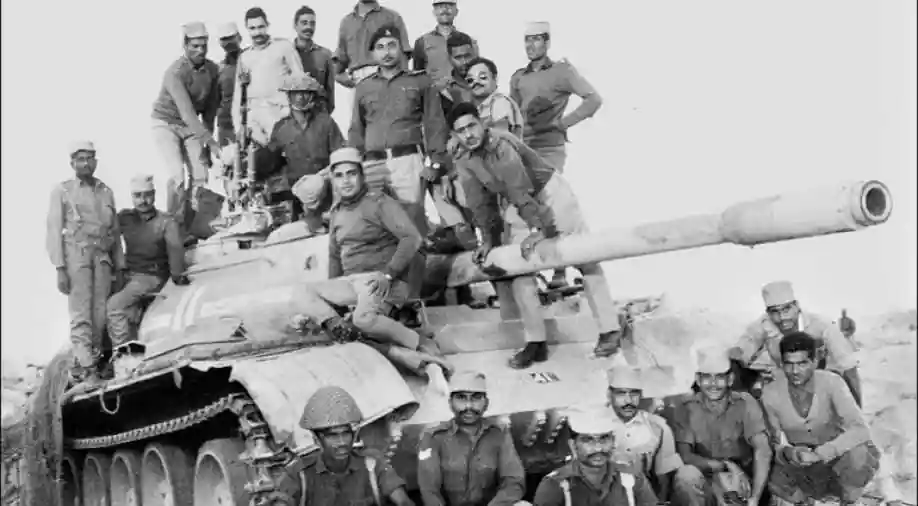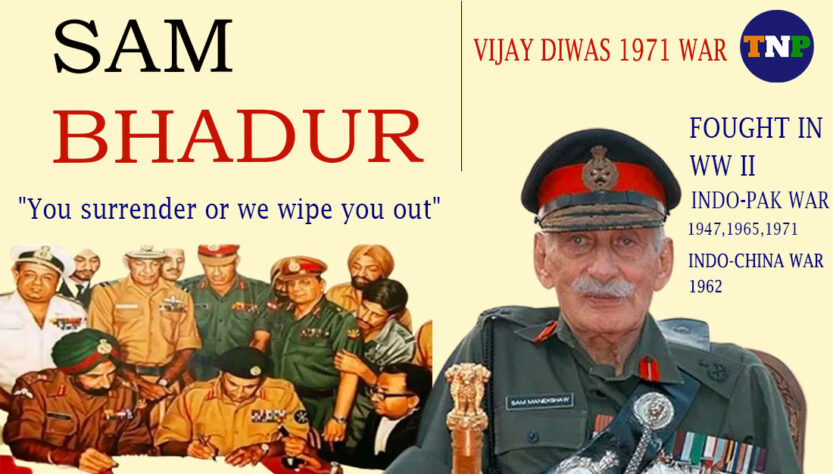Field Marshal Sam Hormusji Framji Jamshedji Manekshaw, widely known as Sam Bahadur, who was the Army chief during the 1971 operation, led the Indian Army in the 1971 war, when the Pakistan Army was brought to its knees in a matter of just 13 days, with nearly 93,000 soldiers.
1971 war: Sam Manekshaw’s strategy
When Prime Minister Indira Gandhi asked Army Chief Manekshaw if he was prepared to go to war with Pakistan, he sought time from the PM and said he could guarantee victory if she allowed him to handle the conflict on his own terms.

After Pakistan waged a war by dropping bombs on Indian Air Force bases, on 3 December 1971, the Army Headquarters, under Manekshaw’s leadership, formulated the following strategy:
- II Corps, commanded by Lt. Gen. Tapishwar Narain Raina (later General and COAS), was to enter from the west;
- IV Corps, commanded by Lt. Gen. Sagat Singh, was to enter from the east
- XXXIII Corps, commanded by Lt. Gen. Mohan L. Thapan was to enter from the north
- The 101 Communication Zone Area, commanded by Maj. Gen. Gurbax Singh was to provide support from the northeast.
The strategy was executed by the Eastern Command, under Lt. Gen. Jagjit Singh Aurora. The following day, the navy and the air force also initiated full-scale operations on both eastern and western fronts. As the war progressed, Pakistan’s resistance crumbled. India captured most of the advantageous positions and isolated the Pakistani forces, which started to surrender or withdraw.
Manekshaw’s warning to Pakistan : “You surrender or we wipe you out”
Manekshaw addressed the Pakistani troops by radio broadcast on 9, 11, and 15 December, assuring them that they would receive honourable treatment from the Indian troops if they surrendered.
Manekshaw said he would stop the war only if the Pakistani troops surrendered to their Indian counterparts by 09:00 on 16 December. ‘You surrender or We wipe you out’ was the message given by Field Marshal Sam Manekshaw to Pakistan.
The deadline was extended to 15:00 the same day at the request of East Pakistan Lt. Gen l AAK Niazi, and the instrument of surrender was formally signed on 16 December 1971.

After the war ended, then PM Indira Gandhi asked Manekshaw to go to Dhaka and accept the surrender of Pakistani forces, but he declined, saying that the honour should go to the GOC-in-C Eastern Command, Lt. Gen. Jagjit Singh Aurora.
As per the ground report Pakistan suffered the loss of 8,000 soldiers and 25,000 wounded others. India suffered 3,000 casualties and 12,000 wounded. It was a significant setback for Pakistan.
Manekshaw’s statement to then-prime minister Indira Gandhi that “my job is to fight, fight to win” best summed up his ethos, which ultimately resulted in the independence of a new nation Bangladesh.
40 years Career & 5 Wars
It is well known that the valiant General narrowly escaped death numerous times. He sustained severe stomach wounds from bullets during World War II. Thankfully, an Australian surgeon operated on him and removed bullets that were stuck in his lungs, liver, and kidneys.

Honours & Awards
He was honoured with the Military Cross for gallantry in 1942, the Padma Bhushan in 1968 and the Padma Vibhushan in 1972.
94 years of contended life
With a long list of achievements, Field Marshal Sam Manekshaw lived a contended life and left for his heavenly abode on 27 June 2008 at the age of 94 years. FM Manekshaw was undoubtedly one of India’s greatest soldiers and will be remembered as an inspiration to younger generations.



